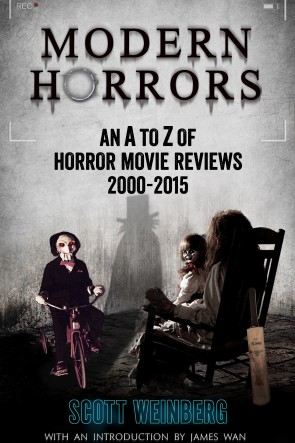FrightFest Review: NIGHT FARE (2015){0}
Uber-horror
“There are no deadlines that never come due, no debts never paid.”
This motto is displayed in the rear of a Parisian black cab for its passengers to read. “Scary, huh?” comments Luc (Jonathan Demurger), a local drug dealer showing his old Mancunian friend Chris (Jonathan Howard) a night on the town. Two years earlier, Chris had been in the process of moving in with his Parisian girlfriend Ludivine (Fanny Valette) when one night, without warning or explanation, he fled back to England. Now Chris is back, seeking reconciliation with Ludivine, even if she is now seeing Luc. This situation represents the kind of love triangle so beloved of much French cinema – and yet both the narrative and genre of Julien Seri’s Night Fare are about to take several unexpected detours as Luc and Chris run from the cab without paying the fare, and its silent, tattooed hulk of a ‘Driver’ (Jess Liaudin) proves very persistent in pursuing what is due.
Though shot superfast (and for under a million Euros) in the empty nocturnal streets of Paris, Night Fare is a slick, purring machine of a movie, tapping into the same model of Eighties cool that Nicolas Winding Refn recently delivered in Drive (2011). Motored by Jacques Ballard’s elegantly sleek neon-lit cinematography, by Alex Cortés’ throbbing synth score, and by Liaudin’s performance of mute menace (his only line of dialogue being an inaudible whisper that we supplement with our own meaning, as in Lost in Translation or Martyrs), Night Fare calibrates Luc’s and Chris’s downward spiral to the constant ticking up of the fare on the Driver’s taximeter – an LED signifier of these two boys’ ever-rising moral debt.
As Luc and Chris squabble over Ludivine, and allude vaguely to a two-year-old guilty secret whose details are only gradually revealed, the Driver himself, though always shot in shadow, also comes more into the light, not just relentlessly dogging the fare evaders’ every move, but also maiming or just plain murdering anyone else, from either side of the law, who gets in the way. Accordingly, as the Driver is both disgruntled cabbie and killing machine, the film pitches itself somewhere between Taxi Driver (1976) and Maniac Cop (1988) – and, via a radical third-act shift in both the narrative and its medium (whose particulars I won’t spoil here), refocuses its attention on the history and identity of the Driver himself, stuck in a median strip between psychotic fascist and folk hero (which, of course, is also where Scorsese’s taxi drive ended). It is an extraordinarily ambiguous finish, satisfying but also deeply troubling, which may leave the viewer cheering the Driver on while equally worrying over whether he and his kind, as they repay their old debts to society, might also just be incurring new ones.
★★★★








